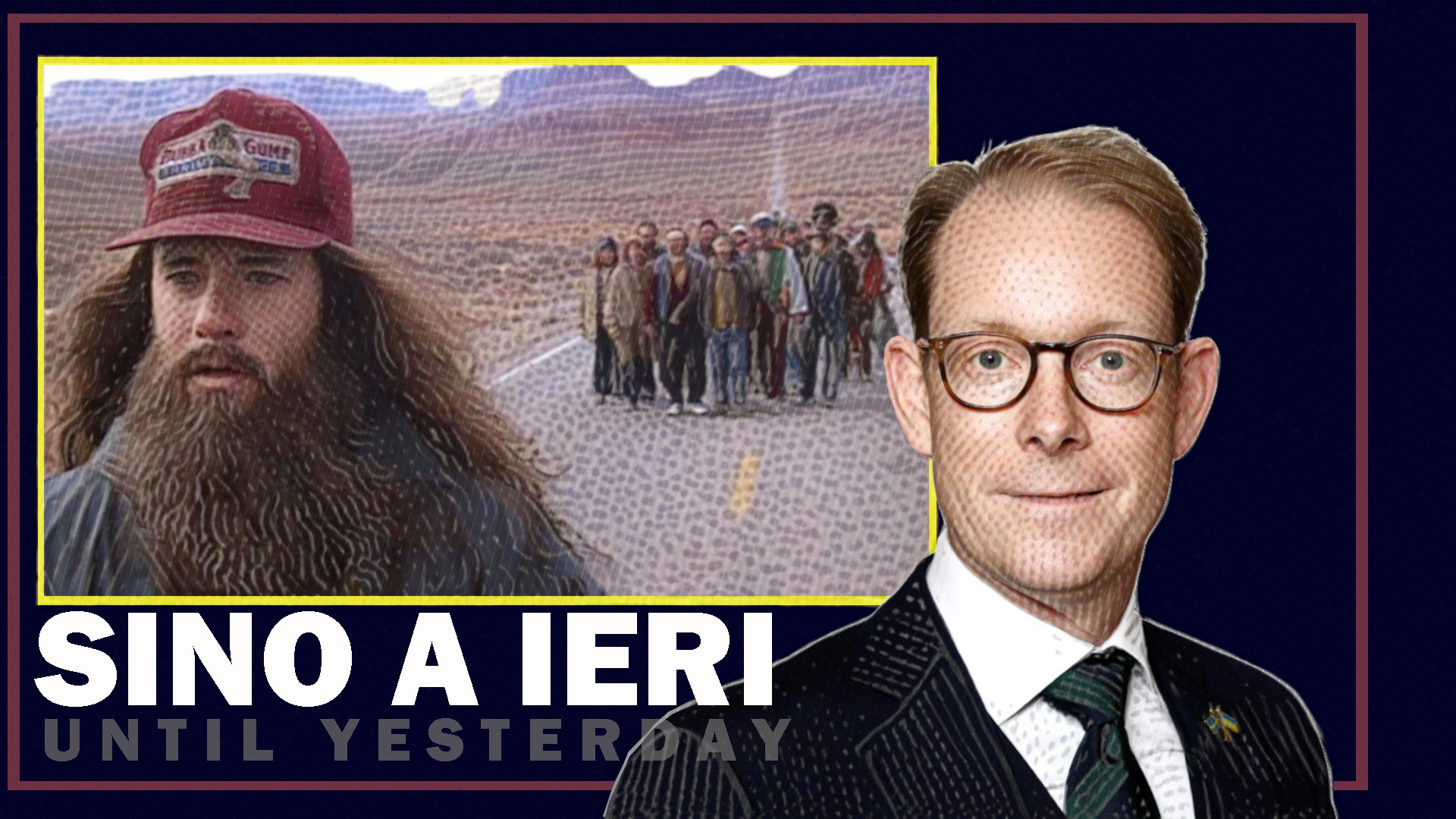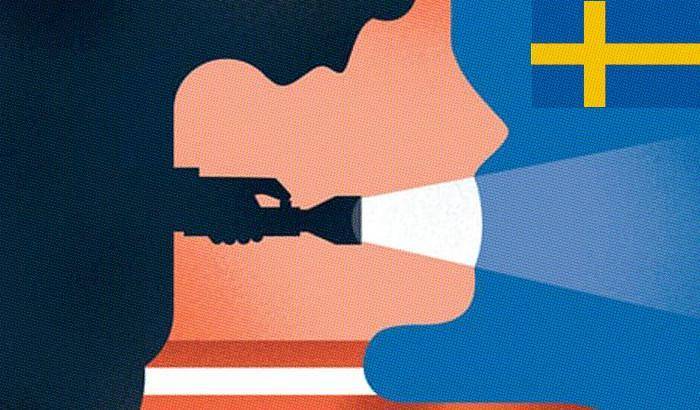Sino a ieri
Il ministro degli esteri svedese, Tobias Billström, si è dimesso improvvisamente, lasciando tutti di stucco: sino a ieri faceva le dichiarazioni missionarie di uno pronto a menare le mani ancora più forte contro la Russia, orgoglioso di aver riposto nel guardaroba dei cani duecento anni di neutralità della Svezia per farla diventare il 32° membro della NATO. È stato uno degli iniziatori più intransigenti della nuova corsa al riarmo e del nuovo corso russofobo dell’atlantismo del XXI secolo.
Sino a ieri.
Oggi, seguendo a ruota il suo omologo ucraino Kuleba, il capo della diplomazia svedese lascia non solo l’incarico, ma lascia anche il parlamento e la politica tout court: «ho cinquant’anni e voglio fare altro», ci comunica. Cosa voglia fare, non si sa. Come Forrest Gump, smette perché è “un po’ stanchino”.
Nessuno si fa domande. Nessuno gli fa domande.
Sino a ieri.
Gliele faccio io, oggi.
Dunque, sig Billström,
1) c’è per caso un legame fra queste sue dimissioni così inopinate e il bombardamento russo della scuola militare di Poltava, dove sono morte decine di addestratori militari stranieri?
2) le risulta che molti questi addestratori fossero proprio svedesi, impegnati esattamente nell’istruire i militari ucraini e della NATO in guerra con la Russia all’uso dei più sofisticati armamenti forniti anche dalla Svezia?
3) Quante delle bare che si sono chiuse sulle salme di Poltava stanno volando verso la Scandinavia in questo momento?
Fanno così, ultimamente, i grandi atlantisti. Prima appiccano incendi bellici devastanti, come in Iraq, in Afghanistan, in Libia e ora in Europa. Poi, dopo le catastrofi, se ne vanno via fischiettando, alla chetichella, come se non fossero mai passati da quelle parti. Magari dopo dieci anni, come l’inglese Cameron, rientrano per combinare altri disastri. Per loro non è importante perdere le guerre. Muoiono sempre gli altri. Per loro è importante che una guerra ci sia, sempre rinnovata, fuggendo se c’è da assumersene la responsabilità negli eventi che costeranno una sconfitta. L’ultima spiaggia è sempre la penultima. Sino a ieri.
__________________________
Until Yesterday
The Swedish Foreign Minister, Tobias Billström, suddenly resigned, leaving everyone stunned: until yesterday, he was making bold declarations like a man ready to strike even harder against Russia, proud of having stored away two hundred years of Sweden’s neutrality to make it the 32nd member of NATO. He was one of the most uncompromising initiators of the new arms race and the new russophobic course of 21st-century Atlanticism.
Until yesterday.
Today, following in the footsteps of his Ukrainian counterpart Kuleba, the head of Swedish diplomacy not only steps down from his position, but also leaves parliament and politics altogether: «I’m fifty years old and I want to do something else,» he tells us. What he wants to do remains unknown. Like Forrest Gump, he stops because he’s «pretty tired».
No one asks questions. No one asks him questions.
Until yesterday.
I’ll ask them today.
So, Mr. Billström,
- Is there by any chance a connection between your unexpected resignation and the Russian bombing of the military school in Poltava, where dozens of foreign military trainers were killed?
- Do you know that many of these trainers were Swedish, precisely engaged in instructing Ukrainian and NATO soldiers at war with Russia in the use of the most sophisticated weapons, some of which were also supplied by Sweden?
- How many of the coffins that closed over the bodies from Poltava are currently flying to Scandinavia?
This is how the great Atlanticists act these days. First, they ignite devastating war fires, like in Iraq, Afghanistan, Libya, and now in Europe. Then, after the catastrophes, they quietly slip away, whistling, as if they had never been there. Maybe after ten years, like the Englishman David Cameron, they come back to cause more disasters. For them, it’s not important to win wars. Others always die. For them, it’s important that there is always a war, constantly renewed, fleeing when it’s time to take responsibility for the events that will lead to defeat. The last resort is always the second-to-last.
Until yesterday.






